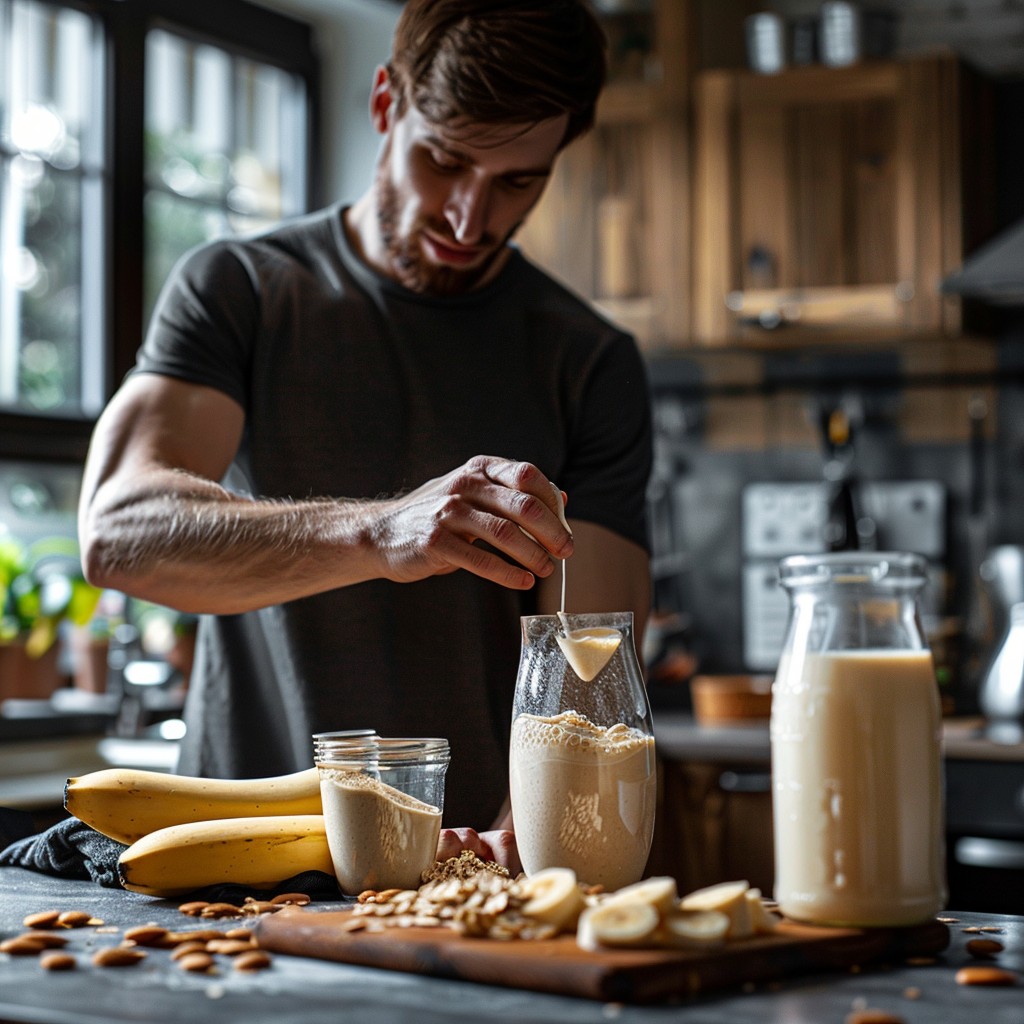The gut-brain axis, a complex communication network linking the digestive and central nervous systems, has emerged as a breakthrough in research to understand the complexity of certain diseases in recent years. It may seem surprising that something as simple as kombucha could influence your mood, but research is helping us to understand this connection.
As we learn more about this intricate connection, the role of food in promoting a healthy gut and, consequently, a healthy brain, becomes increasingly clear. Various food groups benefit the gut-brain axis and help explain how certain foods and a healthy microbiome contribute to overall well-being.
What is the Gut-Brain Connection?
The gut-brain connection is a communication pathway linking the gut and the brain, two organs that appear to work independently but are very interdependent. This connection allows gut health to influence the brain, cognitive function, and mental health. Equally, the brain can impact gastrointestinal functions.
This two-way connection operates via signals transmitted through the nervous system. The enteric nervous system in the gut is connected to the central nervous system via the vagus nerve and the hypothalamic-pituitary-adrenal axis. Additionally, the gut-brain axis communicates through hormones, the immune system, and neurotransmitters.
The Role of Food in the Gut-Brain Connection
Foods that promote gut health by supporting the gut microbiota and reducing inflammation in the body are a beneficial starting point. When the gut microbes are healthy, gastrointestinal functions are optimised, positively influencing the gut-brain connection. Food is one of the key steps to enhancing the health of the gut-brain connection and alleviating related symptoms.
The nutrients and bacteria provided by food fuel the body, supporting all essential functions. It is vital to understand that food impacts physical, emotional, and mental health. This is because ‘feel-good’ hormones, such as serotonin and dopamine, are synthesised by gut bacteria. Consequently, gut microbiota, such as the bacteria living in the gut, directly and indirectly, influence the gut-brain axis.
While the right foods can nourish the gut microbiota, it is equally important to avoid foods that disrupt the gut microbiome balance. The modern diet, often associated with a fast-paced lifestyle, commonly includes processed foods, added sugars, and unhealthy fats, all of which are generally best avoided.
Which Foods Can Improve the Health of the Gut-Brain Connection?
Prebiotics and Probiotics
- Prebiotics: These are dietary fibres that serve as food for beneficial gut bacteria. Fruits and vegetables such as bananas, apples, artichokes, asparagus, and leafy greens are excellent sources of prebiotics. Additionally, whole grains like oats, barley, and brown rice contribute to these essential fibres.
- Probiotics: These are live microorganisms, similar to the beneficial bacteria already present in the gut. Consuming probiotics can help replenish and diversify the gut microbiome, potentially enhancing its overall health. Fermented foods such as yoghurt, kefir, kimchi, sauerkraut, and miso are rich sources of probiotics.
Fibre-Rich Foods
Fibre not only nourishes beneficial bacteria but also promotes regular bowel movements, essential for removing toxins and waste products from the body. These can negatively affect the gut environment and contribute to inflammation, a risk factor for various health issues associated with the gut-brain connection.
- Fruits and Vegetables: A variety of fruits and vegetables provide prebiotics and fibre. Aim for a diverse range of colours to ensure you get a wide array of nutrients beneficial for both your gut and brain.
- Whole Grains: Whenever possible, opt for whole grains over refined grains. Whole grains like oats, brown rice, quinoa, and barley are rich in fibre, vitamins, minerals, and antioxidants, all vital for gut and brain health.
- Legumes: Beans, lentils, chickpeas, and other legumes are excellent sources of fibre, protein, and prebiotics.
Healthy Fats
Healthy fats, such as monounsaturated and polyunsaturated fats, play crucial roles in brain function and gut health. They are essential for cell membrane production, hormone synthesis, and the absorption of fat-soluble vitamins.
- Avocados: Avocados are rich in monounsaturated fats, fibre, and other nutrients. They can contribute to enhanced cognitive function and gut health.
- Olive Oil: Extra virgin olive oil is a good source of monounsaturated fats.
Omega-3 Fatty Acids
Omega-3 fatty acids are vital for brain function, influencing neurotransmitters and cognitive performance. They are mostly found in fatty fish as well as nuts and seeds.
- Fatty Fish: Fatty fish such as salmon, tuna, sardines, mackerel, and herring are sources of omega-3 fatty acids. Aim to include these in your diet at least twice a week to support optimal gut and brain health.
- Nuts and Seeds: Plant-based sources such as flaxseeds, chia seeds, and walnuts contain essential fatty acids.
Polyphenol-Rich Foods
This diverse group of plant-based compounds is known for its antioxidant and anti-inflammatory properties. Chronic inflammation is linked to various health issues, including neurodegenerative diseases and mood disorders. Consuming polyphenol-rich foods may help combat inflammation.
- Fruits and Vegetables: Berries, citrus fruits, dark leafy greens, and apples are rich in various polyphenols.
- Dark Chocolate: Choose dark chocolate with at least 70% cocoa content. Dark chocolate contains flavanols, a type of polyphenol that may benefit cognitive function and gut health.
- Coffee and Tea: Green tea and coffee contain caffeine and polyphenols, which may benefit gut and brain health. However, moderate consumption is advised, as excessive caffeine intake can have adverse effects.










